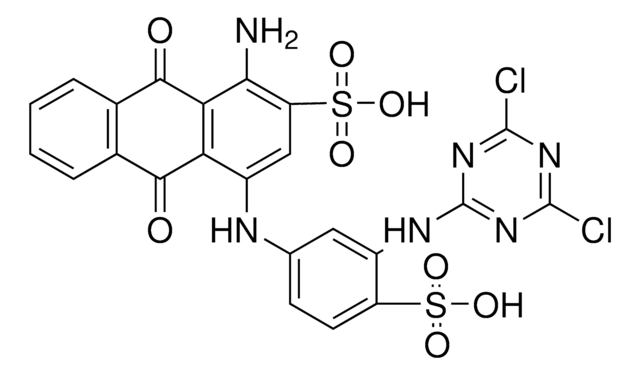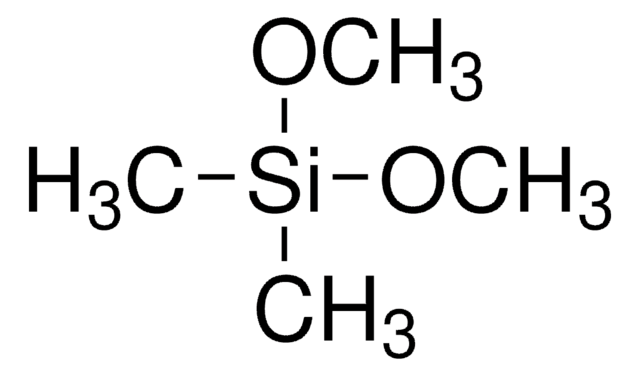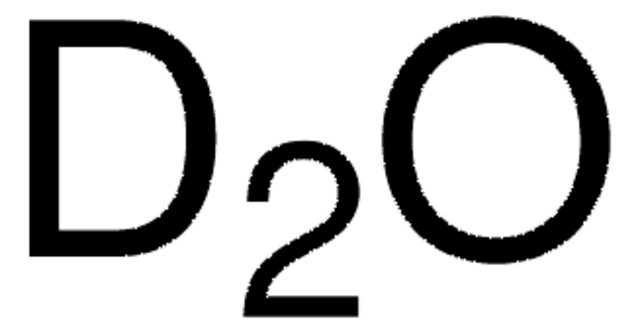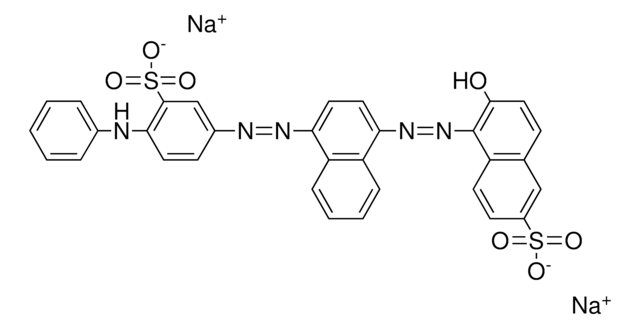306452
Reactive Black 5
Dye content ≥50 %
Synonym(s):
Remazol Black B
About This Item
Recommended Products
form
powder
Quality Level
composition
Dye content, ≥50%
technique(s)
microbe id | staining: suitable
mp
>300 °C (lit.)
density
1.21 g/cm3 at 20 °C
λmax
597 nm
application(s)
diagnostic assay manufacturing
hematology
histology
storage temp.
room temp
SMILES string
[Na+].[Na+].[Na+].[Na+].Nc1c(N=Nc2ccc(cc2)S(=O)(=O)CCOS([O-])(=O)=O)c(cc3cc(c(N=Nc4ccc(cc4)S(=O)(=O)CCOS([O-])(=O)=O)c(O)c13)S([O-])(=O)=O)S([O-])(=O)=O
InChI
1S/C26H25N5O19S6.4Na/c27-23-22-15(13-20(53(37,38)39)24(23)30-28-16-1-5-18(6-2-16)51(33,34)11-9-49-55(43,44)45)14-21(54(40,41)42)25(26(22)32)31-29-17-3-7-19(8-4-17)52(35,36)12-10-50-56(46,47)48;;;;/h1-8,13-14,32H,9-12,27H2,(H,37,38,39)(H,40,41,42)(H,43,44,45)(H,46,47,48);;;;/q;4*+1/p-4
InChI key
HFIYIRIMGZMCPC-UHFFFAOYSA-J
General description
Application
- used in an optimization study on the photocatalytic degradation of RB5 dye in synthetic greywater effluent (i.e. aqueous RB5 in distilled water), in order to understand the effects of different photoreactor parameters on the degradation kinetics.
- as a textile dye to investigate the anaerobic reduction in upflow stirred packed-bed reactors (USPBRs) with biological activated carbon (BAC) system
- used in the performance evaluation of dye removal forlarge molecule substance
Signal Word
Danger
Hazard Statements
Precautionary Statements
Hazard Classifications
Resp. Sens. 1 - Skin Sens. 1
Storage Class Code
11 - Combustible Solids
WGK
WGK 3
Flash Point(F)
Not applicable
Flash Point(C)
Not applicable
Personal Protective Equipment
Choose from one of the most recent versions:
Already Own This Product?
Find documentation for the products that you have recently purchased in the Document Library.
Customers Also Viewed
Our team of scientists has experience in all areas of research including Life Science, Material Science, Chemical Synthesis, Chromatography, Analytical and many others.
Contact Technical Service












